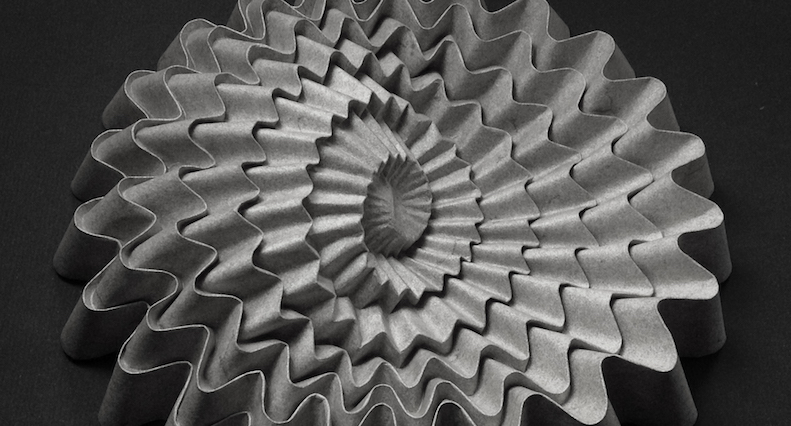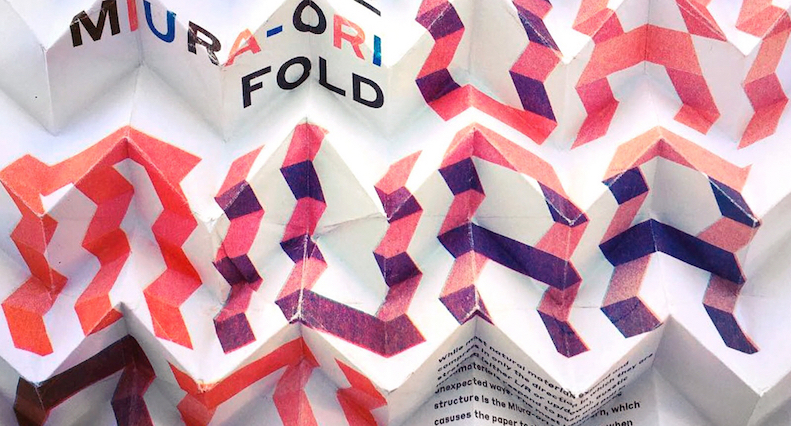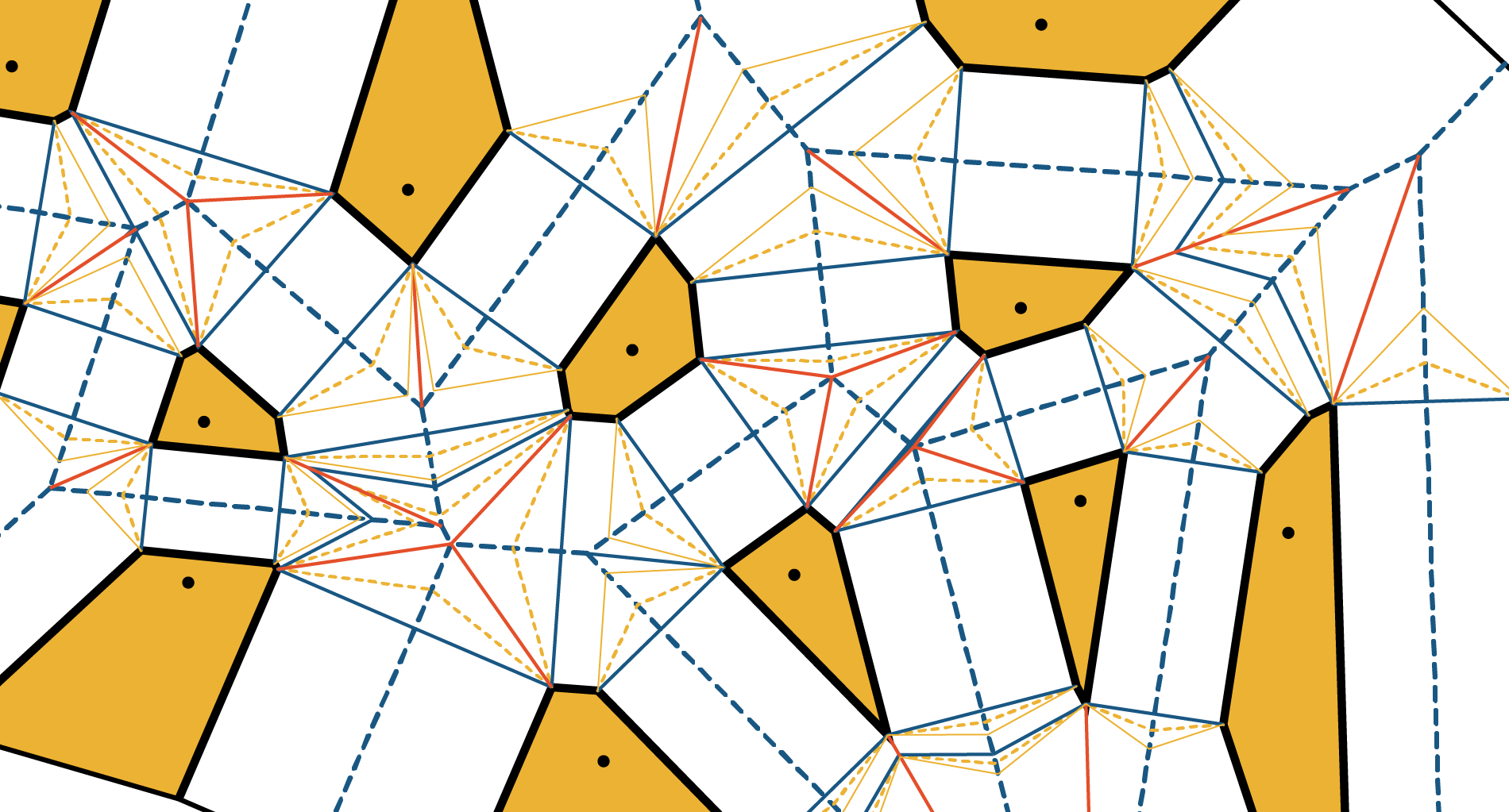Call for Students: Code Paper Scissors
- Two-Week Session, Monday February 4th - Sunday February 17th, 2019
- SFPC, 155 Bank Street, West Village, NYC
- 6:30pm - 9:30pm, Evening Classes
- Apply now! – deadline is January 21st, 2019
How does our understanding of technology change when abstractions become tangible? In this course, paper acts as a bridge between code, mathematics, and our human sensory experience of the world.
When we fold, we imbue an inert material with pattern, structure, animation, function, and interface; a crease in paper is a re-programming of the material’s memory. Folded structures give us a means to touch and manipulate difficult problems and unlike simple machines (limited by static friction), folding systems can be applied at any scale, from nanometer to spacecraft scale. With an increased knowledge of folding mechanisms can we build more sustainable, ecologically-aware technology?
Lead by paper engineer and designer Kelli Anderson and origami artist and developer Robby Kraft, SFPC’s two-week session will explore the wide variety of ways that a piece of paper can produce function.
 Kelli Anderson - This Book is a Camera
Kelli Anderson - This Book is a Camera
Course objectives include:
- learn how folding can be used to augment or replace traditional engineering methods
- foundational methods in kirigami and pop-ups
- contemporary origami design from uniaxial bases to software based computational flat-foldability
- an introduction to silkscreened electronics
- an introduction to prototyping methods, manufacturing, code-based modeling and testing strategies
Class meets weekday evenings 6:30 - 9:30 pm, ten times between February 4th - 15th, with a final student showcase on Sunday, February 17.
Students will have access to resources and mentorship by leading practitioners in the field to create ambitious paper projects. We want to encourage students to invent new folding-as-tech projects that no one has seen before or reinvent ancient techniques anew with software and hardware. No prior coding or craft experience is necessary. Admissions is based on essay and previous work samples.
“The distant universe and our immediate world can both be found in paper.” – Kenya Hara
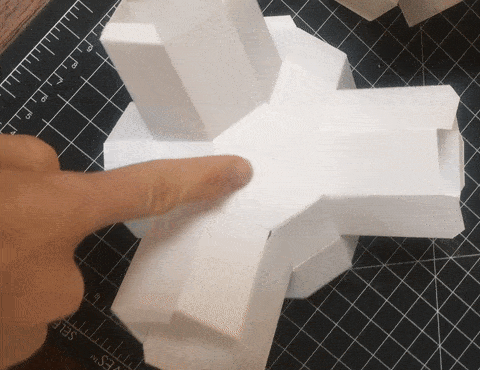
Who are the teachers?
- Kelli Anderson (Co-Organizer) - Kelli Anderson is a designer/paper engineer who draws, photographs, cuts, prints, codes, and creates stop-motion videos. She is also known for her work for NPR, The New Yorker, Wired, and MoMA—as well as branding/space redesigns for Russ & Daughters and momofuku. Her books, This Book Is a Planetarium and This Book is a Camera, are collections of functional pop-up contraptions that elucidate scientific principles in tactile terms.
- Robby Kraft (Co-Organizer, On-Site Support) - Robby is an origami artist, creative engineer, instructor, and toolmaker. He’s the creator of Rabbit Ear, the origami software design tool, and is proficient in all disciplines of origami including advanced folding, design, and mathematics and software simulation.
- Simon Arizpe - Simon is a paper engineer and illustrator. His pop-up book work has received the Award of Excellence from the Society of Illustrators and the Museum of Comic Book Art and Cartooning. The Smithsonian’s Cooper-Hewitt Design Museum Library and the Columbia University Library have acquired his work for their rare book collections.
- Pam Liou - Pam is a computational designer and writer living in Brooklyn, NY. Her work examines tensions between craftsmanship, technology and commerce, revealing the hidden sociopolitical infrastructures undergirding human industry. Her research centers around recoupling the consumer with the producer through design literacy and mass customization, fostering intimacy and efficacy through a dialectical creation process.
- Coralie Gourguechon - Coralie Gourguechon is a designer and a paper electronics maker. Her projects aim to to demystify electronics by simplifying the execution of simple circuits in a graphical way and using paper.
- Taeyoon Choi (Session Advisor) - Taeyoon is an artist, a co-founder of School for Poetic Computation, an adjunct professor at NYU ITP and a former fellow at Data and Society. In 2018, Taeyoon is working on Distributed Web of Care and ongoing research with a critical perspective towards technology, ethics, justice and sensitivity to the concept of personhood.
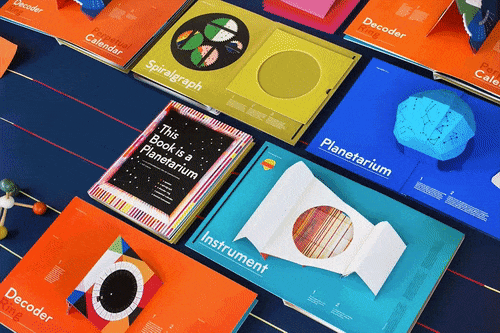
Kelli Anderson - This Book is a Planetarium
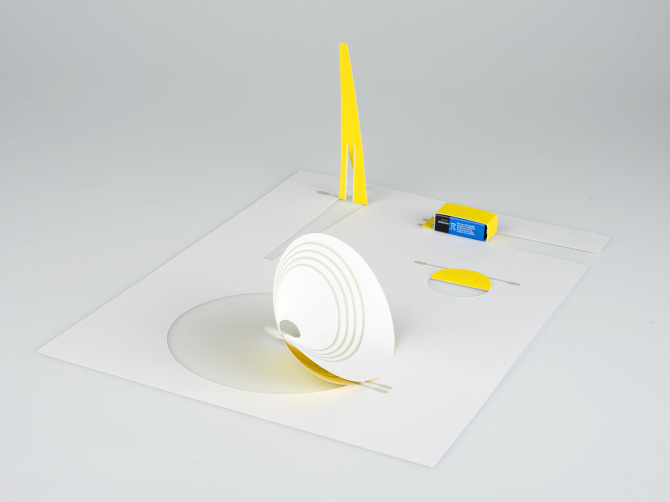
Coralie Gourguechon - Paper electronic modules
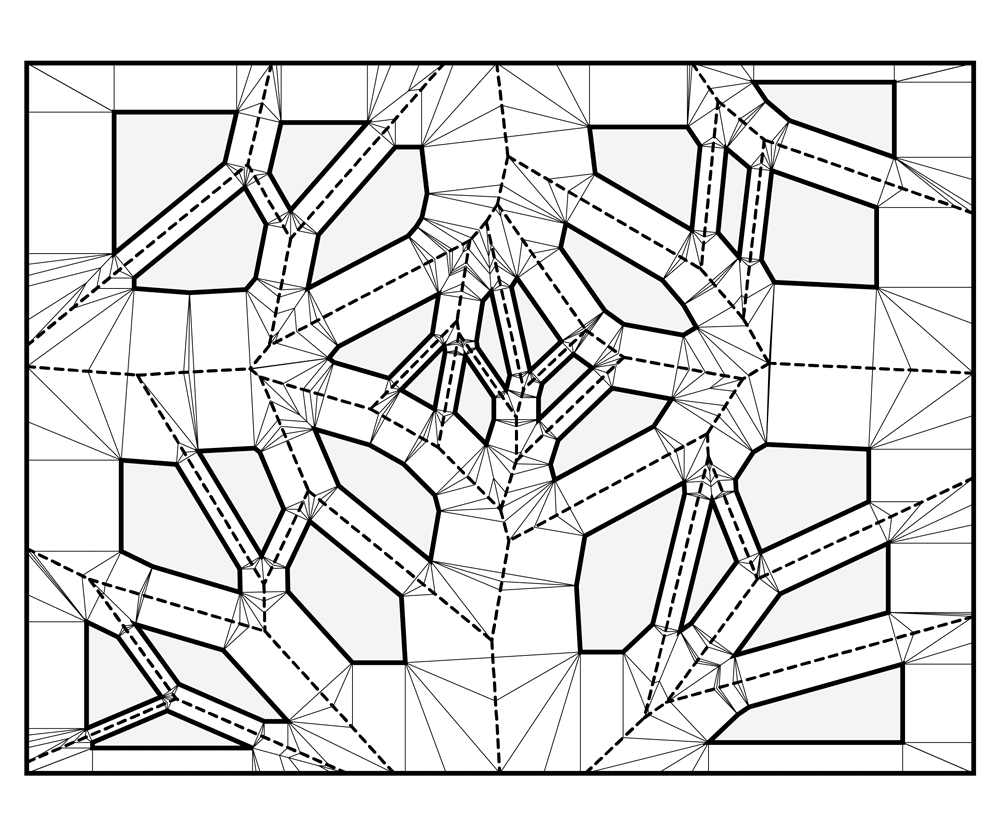
Robby Kraft - orthogonal Voronoi molecules
What will happen in these two weeks?
Classes are held in the evenings Monday-Friday from 6:30-9:30pm. SFPC space will be open for students on weekdays between 4pm-6:30pm for office hours and work. The session will culminate in a showcase / party on the evening of Sunday, February 17th, open to the public, where students can exhibit and present their projects from the two weeks.
Students will have full access to the space during open hours for the two weeks of the session to work on projects between classes and mentors will be readily available for technical, conceptual, and artistic guidance.
What is expected of me?
- Come to all classes and thoughtfully engage with your classmates and teachers.
- We are looking for autodidacts from all backgrounds who are curious, generous and open.
- We welcome students with a broad array of technical and artistic experiences–no experience level is required.
- A laptop computer will be useful for some sessions.
- All other materials and supplies will be provided by SFPC.
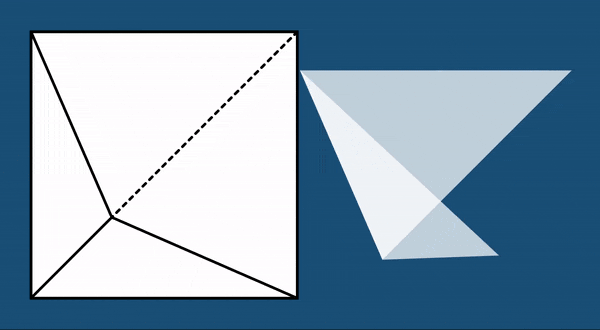
Rabbit Ear, creative coding origami library
How do I apply?
Apply here by January 21st, 2019.
We accept up to 18 students. We will respond to your application within 3 weeks of submission. Rolling admissions means there are fewer and fewer slots the longer you wait, so if you’re interested in the program get your application in early!
How competitive is the admissions?
SFPC admissions is highly competitive. Every session, we receive up to 80 applicants and select 18. We focus on creating diversity among our student body. We work with a group of alumni and teachers to review and select students based on their work samples and essays.
How much is tuition?
$2,000 USD for the 2-week program. You’ll also need to cover your own cost of living, including housing and meals (recent alumni report this to be in the range of $500 - $900). Upon acceptance, payment of full tuition, your space in the class will be reserved. SFPC tuition goes directly to paying for the teachers, organizers, materials and space that make sessions like this possible; our finances are open source.
Do you offer scholarship?
We are completely self-funded, which dramatically limits our ability to offer scholarships. In Code-Paper-Scissors, we are offering two work-study opportunity to a qualified applicant who would be expected to work 10 hrs/week in exchange for a 50% reduction of tuition. We’re particularly looking out for women, people of color, disabled person, people under-represented in the field of art + technology, and those with financial need.
Please note that if you apply for work study, we will consider your application separately from the general admissions applications, since we have little flexibility regarding scholarships. This is for people who absolutely need assistance to participate in SFPC. Occasionally, students have received support from cultural foundations, schools or current employers and we are happy to provide supporting materials as proof of acceptance.
Cancellation and refund policy
- If you are accepted and need to cancel, we can give you 100% refund up to January 15th, 2019.
- 50% refund between January 15th – January 31st, 2019.
- 25% refund between February 1st – February 4th, 2019.
- No refunds can be given after the first day of class.
- Participation is not transferrable to another person.
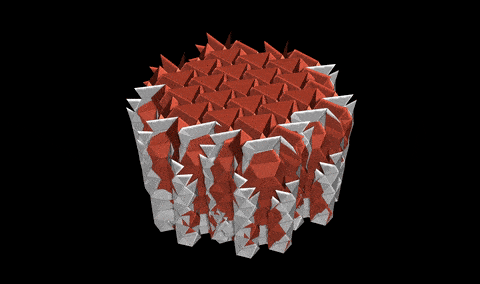
space filling origami by Robby, rendered in Origami Simulator by Amanda Ghassaei.
Where is SFPC?
We are located at 155 Bank Street, in the courtyard of the Westbeth Artists’ Community in Manhattan’s West Village, New York City.
Contact Us
Feel free to contact organizer Robby Kraft (robbykraft@gmail.com) with any questions about the session, or info@sfpc.io for any general questions about finances or the school.
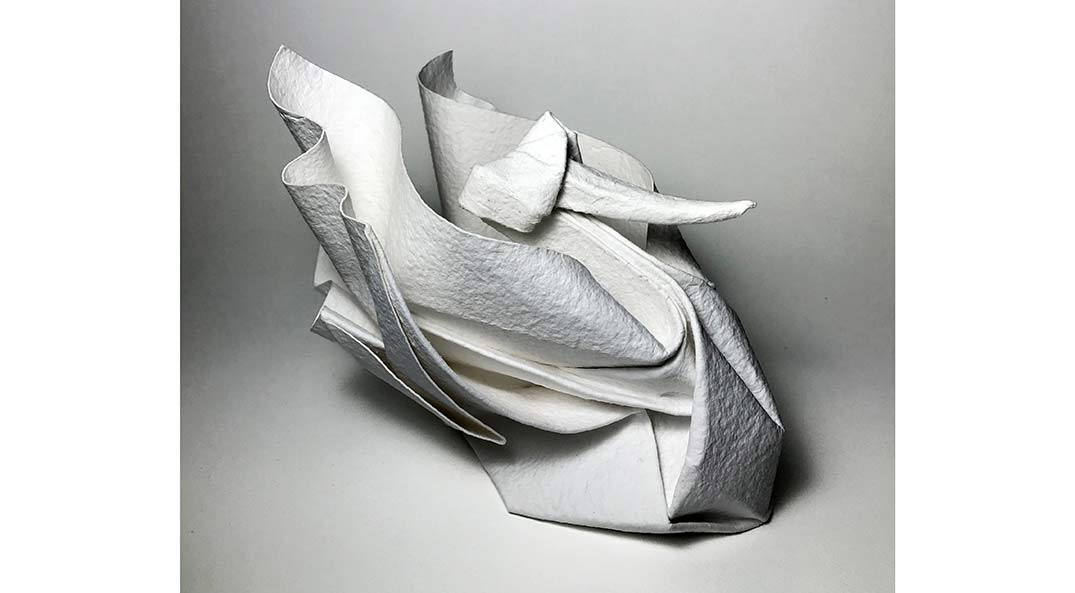
SFPC is filled with amazing people and an open mindset to learning, and doing. It has taught me different ways of thinking, ones that I would be sure to bring back to my endeavors outside of the art world.
I'm half way through the program and I'm already missing being here. SFPC was a much needed breath of fresh air in my hectic creative existence, an unlikely place to stop and remind myself what was it I was into in the first place.
SFPC messed up my life a little bit. Actually, I think it's going to mess it up a lot. Before this program I thought I knew what I was doing and what the shape of my life was going to look like. Now I don't and each day I wake up scared I won't get to be a part of a community like this again. Everyday also now brings a fresh but welcome creative terror to overcome. Also I think I may have ended up moving to New York accidentally.
SFPC is the best place you can explore your interest as much as you want and the place you start to write your own poem.
SFPC is not really a school or a course — it is more like a door into an extraordinary world. It is driven by passion, kindness and the thrill of teaching and learning. I would love to live those inspiring weeks all over again.
SFPC was amazing — life-changing even — i want to do all this stuff for the rest of my life!
I've never been consistently surprised and inspired as much as at SFPC.
If you think SFPC is what you think, that will be wrong. SFPC is a space for a group of people who badly want to try something new. SFPC will become a spirit embedded in your blood which makes you think things with a different angle, just like its motto: more poetry, less demo.
I learned a lot at SFPC. It was only a 2 week program last time, but I learned many things from other participants and got the chance to explore and fail freely. SFPC helped me to reshape the way I think. It's your turn.
School For Poetic Computation is equal parts The Factory, childhood blanket fort, and mad scientist's lab. I learned a ton from the teachers and the whole SFPC community in a huge collaborative and exploratory environment.
Attending SFPC is like walking into an all day buffet supplied with food from hyper-talented chefs. There's more than you could ever consume, naturally, and you will most likely find yourself requiring a digestion period, but holy crap is it tasty.
My takeaway from SFPC: Never settle for code that isn't at least a little bit magic
In SFPC I found a great community and it gave me the confidence to take on coding projects I couldn't have done before.
SFPC is the purest, most honest exchange of knowledge and experience among peers I have ever experienced. It is a supportive space where everyone learns from everyone, and bridges are built that continue to be strengthened for years to come. You won’t get a certificate or a title at the end of it, but I would be amazed if you ever looked at your world the same again. I haven’t.
